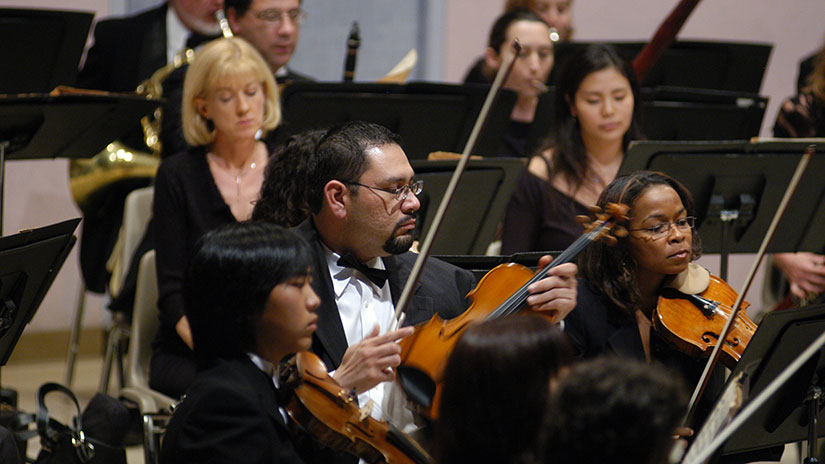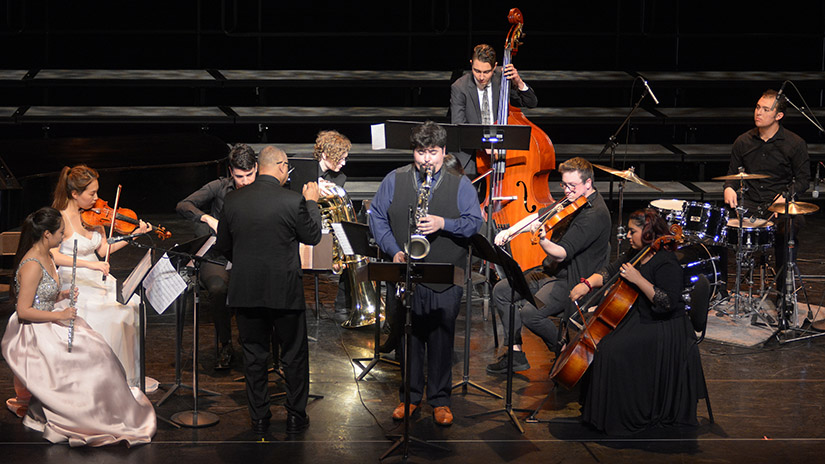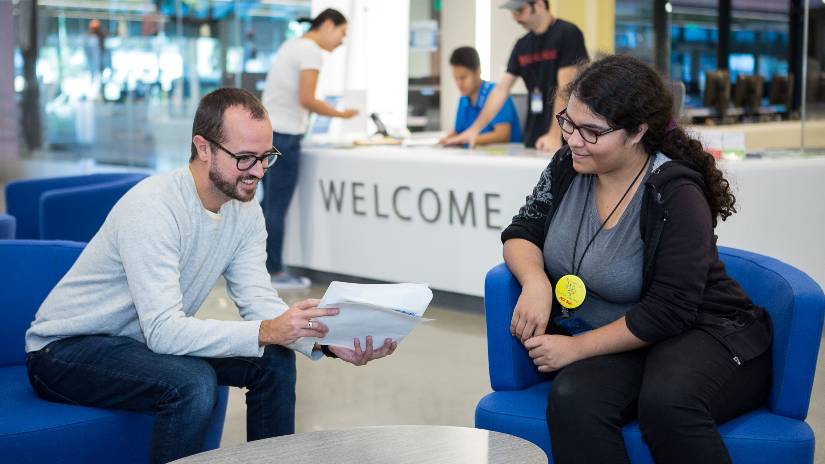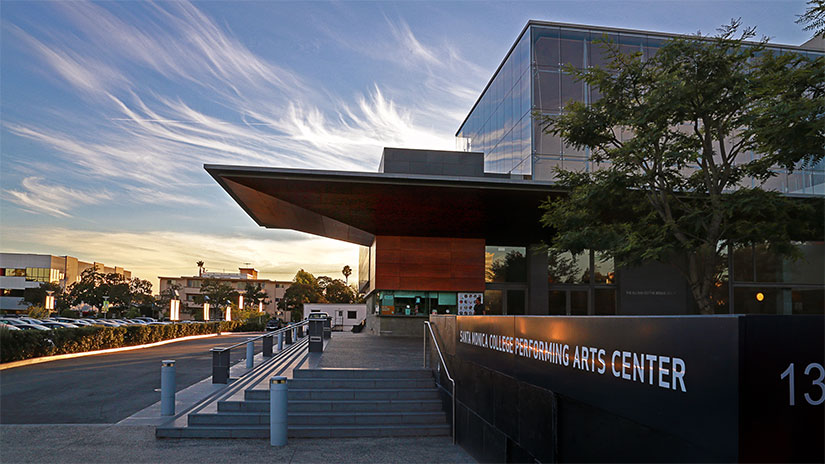About the Music Programs
Jazz in American Culture (Music 33) focuses on the origin, development, and musical sub-styles of Jazz music, with significant emphasis placed on the sociopolitical and economic realities that influenced the musical decisions of its primary innovators. The course will look at the cultural intersection of African American, European-American, and Chicano/Latino communities and how that dynamic has shaped this uniquely American art form. Designed for the non-major but also recommended for music majors.
Music Appreciation (Music 32) is designed to introduce and acquaint both music majors and non-music majors with various forms and styles of music. It is offered in a classroom setting as well as online.
Music History (Music 30 and Music 31) is a more in-depth study designed especially for music majors but open to all. It covers the development and characteristics of music from Antiquity to the 21st Century.
Also Offered
A World of Music (Music 29)
History of Rock (Music 36)
Music in American Culture (Music 37)
Students and community members have the opportunity to participate in more than ten ensembles and performing organizations. Please see the Music Department pages for more information.
The percussion program at SMC centers around developing fundamental percussion technique on the snare drum, which is then transferred to other percussion instruments. The beginning class is designed for people who have never played an instrument before or those who have some experience on other instruments, but not percussion. The intermediate class continues the development on snare drum, working on rolls and other techniques; the second half of the semester is devoted to percussion ensemble rehearsals, culminating in a short concert the last week of class.
Both classes will be given demonstrations of the typical percussion instruments found in the orchestra (bass drum, cymbals, keyboard percussion, and timpani), with the opportunity to try these instruments. Furthermore, a guest speaker is usually invited to give a demonstration--with class participation--of Latin and world percussion instruments. Most lectures will be accompanied by listening examples, so students can hear a greater variety of percussion performances.
The piano program at SMC has a sequence of classes that cover the spectrum, from rudimentary to advanced. The elementary levels are taught in a piano laboratory with 25 electronic pianos with full-length keyboards and 2 grand pianos.
The upper levels are presented in a master class format, with students performing individually for a critique by the instructor.
There are specialty classes also: piano ensemble (with public performances), keyboard improvisation (including pop and jazz), and sight-reading at the keyboard.
Composition instruction is offered through the Applied Music Program and requires an audition. Interested students should be prepared to submit at least two contrasting original compositions in both notated score and audio formats. Please go to the Applied Program site for additional information.
Below are a collection of recordings and videos of music by former composition students in SMC's Applied Music Program that demonstrate their diversity, creativity, and imagination. Many of our composition students are also active performers and most have gone on to transfer to university music programs in film scoring and composition. Some are currently flourishing as composers/performers/arrangers in the entertainment and film industry. The composition faculty at SMC includes Dr. David Goodman, Dr. Brian Driscoll, and Dr. Dave Kopplin.
- "Sleep, Darksome, Sleep" Music by Louis Stephens (Choir conducted by Dr. Brian Driscoll)
- "Autumnal Suite" Music by Jeff Findley (Andrea Whitt, Viola and Bernard Bayer, Piano)
Pumpkin's Lullaby
Harvest
The Bodmer Oak - "De Profundis" Music by Maria Moraru (composer, pianist, and conductor)
- "The Four Horsemen of Apocalypse" Music by Maria Moraru (composer and pianist)
- "Trio-Mvt 3" Music by Chris Durian
- "Changes" Music by Anoush Saboktakin
- "Terminator 3-Opening Scene" Music by Anoush Saboktakin
- "Prelude for Flute and Piano" Music by Su Young Cho
- "Der Totentanz" Music by Ariel Clark (1984-2007)
- "Rags to Riches" Music by Ariel Clark
The Music Department offers a comprehensive theory and musicianship sequence that includes the following courses:
- Fundamentals of Music (Music 1)
- Fundamentals of Musicianship (Music 5)
- Diatonic Harmony (Music 6)
- Chromatic Harmony (Music 7)
- Modulation and Analysis (Music 8)
- Musicianship (Music 2, 3, and 4)
- Popular Harmony and Arranging (Music 10)
- Tonal Counterpoint (Music 13)
- Orchestration (Music 19)
The core Theory and Musicianship sequence are designed to teach students the harmonic and contrapuntal idioms of music through music writing, listening, and analysis assignments. These courses also include the study of the twentieth century and contemporary jazz/pop idioms. Music 5 may be taken after Music 1 or concurrently; these courses are skills advisories for all other theory and musicianship courses.. The Music 6, 7, and 8 sequences are designed to correlate with the Music 2, 3, and 4 Musicianship sequence.
Music 10 (Popular Harmony and Arranging), Tonal Counterpoint (Music 13), and Orchestration (Music 19) are elective courses that are generally offered in alternate years.
The Voice Program at SMC offers a series of beginning, intermediate and advanced classes in vocal technique and performance skills, as well as private lessons through the Applied Program. Emphasis is on a solid and flexible classical technique, which can be applied to all styles and genres. Performing ensembles such as Chamber Choir, Concert Chorale, Jazz Vocal Ensemble, Musical Theatre Workshop and Opera Workshop give students the opportunity to further their performance skills.
Voice classes are designed in sequence for the beginning voice student to explore solo singing and are generally run in a master class format, where individual students have the opportunity to sing in front of the class and receive feedback.
Music 50A Elementary Voice is open to anyone interested in learning about vocal technique and performance. No experience necessary!
Music 50B Intermediate Voice is for students who have successfully completed 50A or have commensurate experience. The instructor will hear students on the first day of class to determine whether 50B is the appropriate level for them.
Music 57 Advanced Vocal Techniques is an audition only class for the more serious voice student. Students have the opportunity to sing in a public recital. Auditions are held on the first day of class. Please contact Dr. Janelle DeStefano x4946 [email protected] for more information.
The Applied Program offers private lessons for students planning on transferring to a four-year institution as Music Majors. Applied voice students may have an emphasis in classical or jazz. For more information click on the Applied Music link below.
Voice students are encouraged to audition for our performance groups: Chamber Choir, Concert Chorale, Jazz Vocal Ensemble, Musical Theatre Workshop and Opera Workshop. Auditions are generally held during the first scheduled class time for the semester. For more information, please see Performing Organizations.







